Three survivors of a secret military group that led Nazi Germany into disastrous mistakes through a series of daring battlefield stunts will finally be honored at a ceremony in Washington on Thursday.
Bernie Bluestein, 100, John Christman, 99, and Seymour Nussenbaum, 100, were members of a tactical deception unit called the “Ghost Army” whose exploits were so secret they were not allowed to mention them for over 50 years.
Only seven members are still alive of the 1,100 artists, designers and technicians who sometimes posed as a force 40 times their size less than 100 meters from the front line.
They used inflatable equipment, sound effects and radio tricks to deceive the enemy, and their efforts would be rewarded with the Congressional Medal of Honor.
“I didn’t even tell my wife until the 1990s, when the secret was lifted,” said Nussenbaum of Monroe Township, New Jersey.
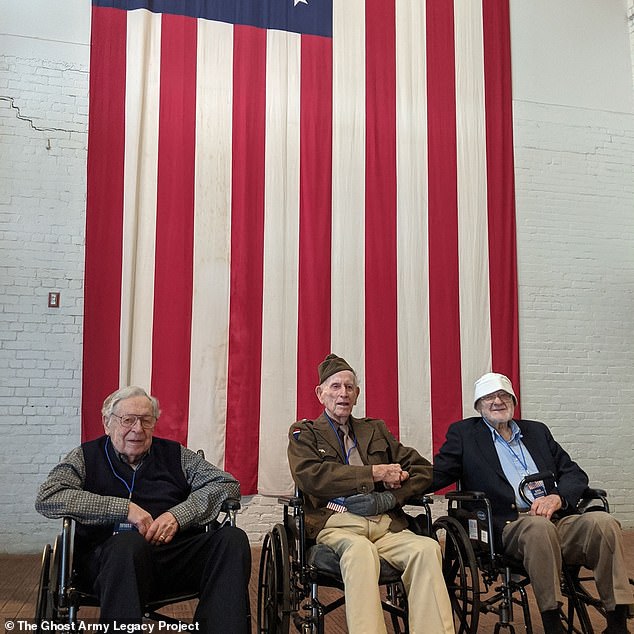
Seymour Nussenbaum, Stanley Nance (now deceased), and Bernie Bluestein at the National World War II Museum. Nussenbaum and Bluestein will be present at the DC ceremony


Hundreds of inflatable tanks were modeled and painted during the war.
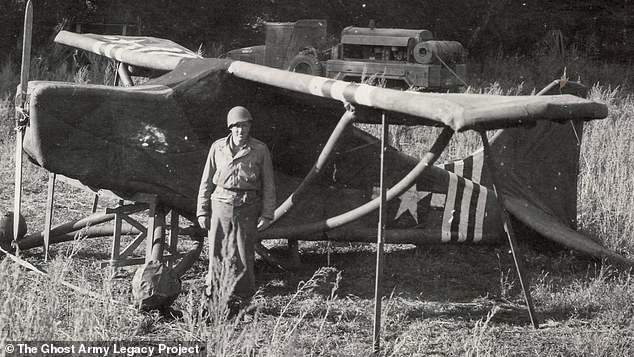

And fake planes on fake airfields have become another specialty of the group.
“I couldn’t risk the lives of the soldiers who might be involved because of what I said.”
The army’s top brass began searching theaters, advertising agencies and art schools in 1944 for men who could fool the Nazis in the run-up to D-Day in 1944.
They were initially divided into two units, the 23rd Special Troops Headquarters and the 3133rd Special Signals Company, before coming together at Stratford-Upon-Avon in England in the spring of 1944.
Once in Europe, they fooled Nazi surveillance by deploying fleets of inflatable tanks, trucks, and planes, sometimes even building entire fake airfields to leave the Germans perplexed as to the Allies’ true positions.
“This was the first mobile, multimedia tactical deception unit in the history of warfare,” said Rick Beyer of the Ghost Army Legacy Project.
“They were able to project their deception – visual, audio, radio, special effects – through all these different means, and they are essentially another arrow in a battlefield commander’s quiver to outmaneuver the enemy.”
Five-hundred-pound speakers broadcast recordings of nonexistent troop exercises up to 15 miles away while filling the airwaves with fake radio reports.
They helped keep the Germans in the dark about the true location of General George Patton’s Third Army as it marched across France in the weeks after D-Day.
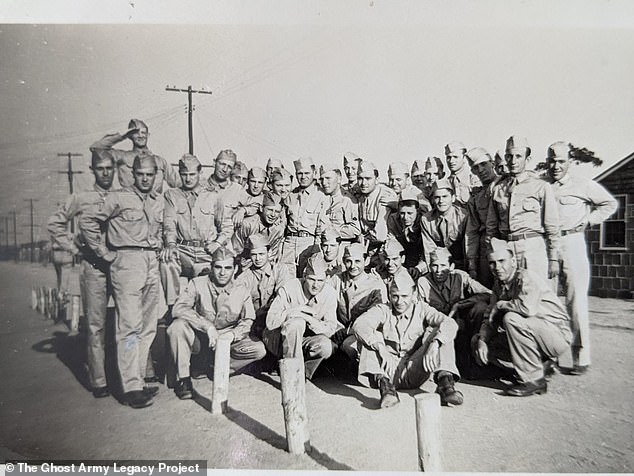

More than 1,100 men ultimately served in the unit that would become known as the Ghost Army.
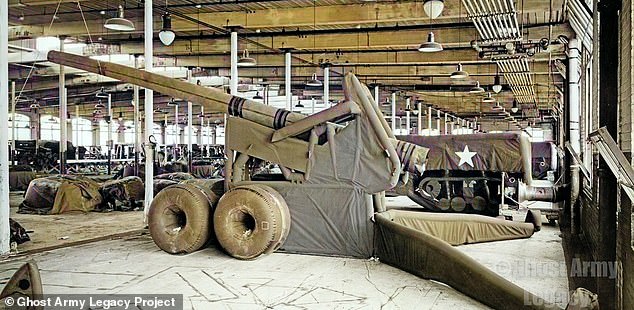

Some of their works, like this fake artillery piece, are still on display in army museums.


John Christman, 99, will make up trio of survivors heading to Capitol Hill on Thursday
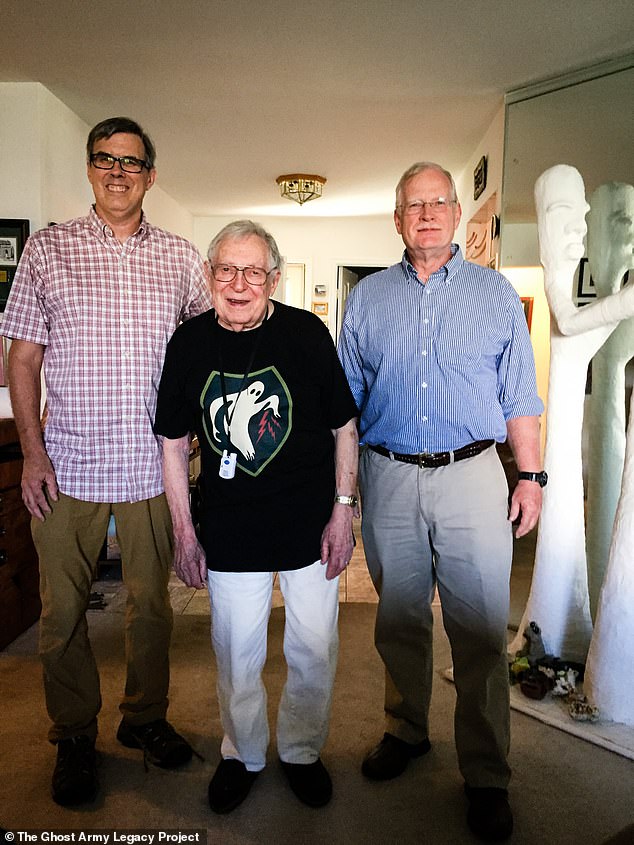

Seymour Nussenbaum, 100, told his family his job was “blowing up tanks.”
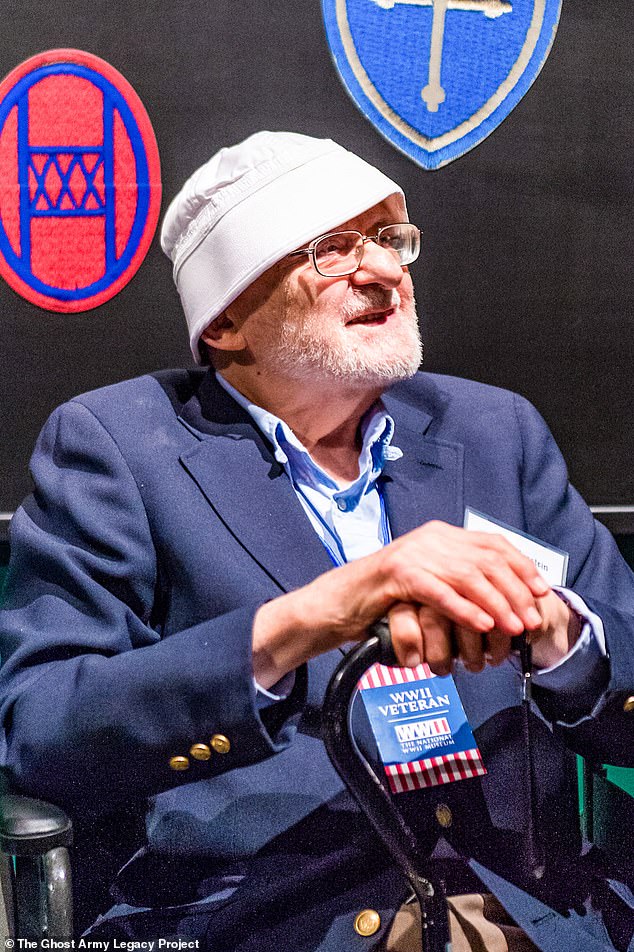

“I’m just sorry there aren’t more of my comrades still alive who can enjoy this as much as I do,” Bernie Bluestein said, 100 years before the ceremony.
And they spent a week posing as the 6th Armored Division to rescue Patton when his position was dangerously exposed along the Moselle in September 1944.
The little band of brothers helped bring the war to a conclusion by inflating 200 fake trucks and tanks in March 1945 to pose as the 40,000 men of two divisions of the 9th Army, distracting German efforts while the main force Allied force finally crossed the Rhine.
Nussenbaum, who later worked as a packaging designer, said he was absolutely honest with his family after the war when they asked him about his experiences and he told them: “I blew up tanks!
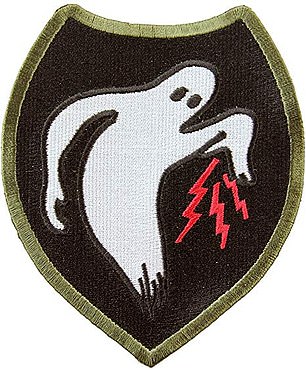

The Ghost Army badge adopted by the group
“Most of our operations were between 100 and 300 meters from the front line,” said Anderson Wilson, who died in 2020.
“We didn’t have any kind of artillery, only trucks to move the unit in a hurry. But we haven’t had as many casualties as you might think for this type of outfit.
Only seven members are still living, but among those honored is the late Mickey McKane, of Keene, New Hampshire, who was also recruited to the art school in 1944.
“Being artistically minded, he went to Pratt Institute, which is a famous art school in New York, and at one point the US Army began a recruitment process through the art schools ” his son Keith McKane said in June. 2021.
“And they came and said they were looking for soldiers with a penchant for art, and I think that’s something that caught my father’s attention.”
“The entire McKane family is thrilled that this story has become part of American history.”
U.S. Rep. Annie Kuster of New Hampshire, a Democrat who sponsored the bill to award the medal in the House, said: “What made the Ghost Army special was not only its extraordinary courage, but also his creativity.
“Their story reminds us that listening to unconventional ideas, like using visual and audio deception, can help us solve existential challenges like defeating tyranny.”
The unit’s work is believed to have saved approximately 30,000 Allied lives, but the records, along with their stories, were sealed until 1996, 51 years after their service, according to the Ghost Army Legacy Project.
“It was classified, we couldn’t talk about it. People asked, “What did you do?” and I’d say, ‘Well, I’m special troops,'” Wilson told the Record Courier in 2013.
“They were like, ‘Oh, you played in a band?’ “Yes, I played in a band.”
“I didn’t need much explanation. It didn’t bother me,” Wilson, who knew how to play the drums and played in one of the bands on the boat trip to England, said at the time.
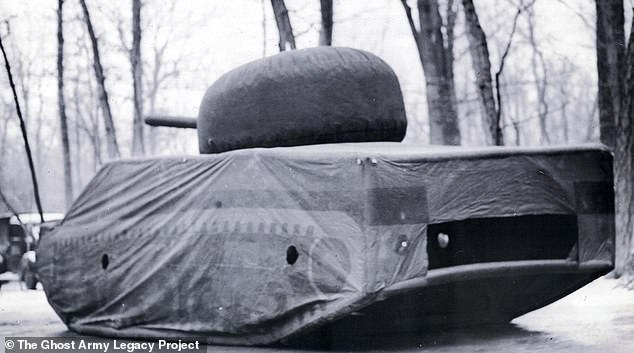

The group met in Stratford-Upon-Avon in England to develop their techniques
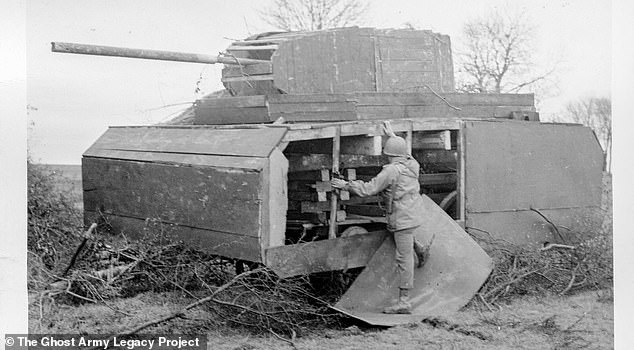

Wooden planks would be used to deceive the enemy if inflatable tanks were not available
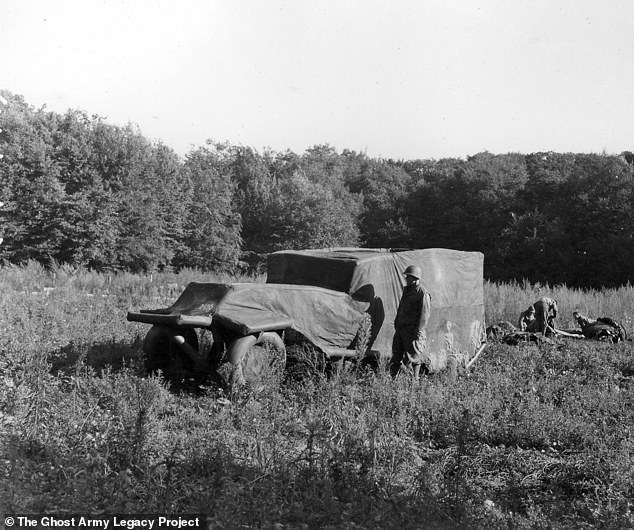

Members of the 23rd Special Troops and the 3133rd Special Signal Company – known as the Shadow Army – will be honored with the highest medal Congress can present: the Congressional Gold Medal.


Nine of the 1,100 soldiers lined up for a well-deserved drink
“On the ship going from the United States to England, there was a band I played in. I was so seasick that I was playing and getting sick at the same time.”
Bluestein, 100, said he was happy the group was finally getting “a little recognition” with the highest honor Congress can bestow.
“I never in my life expected something like this, it completely disgusts me,” he said.
“I’m just sorry there aren’t more of my comrades still alive who can enjoy this as much as I do.”
